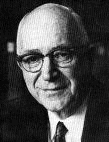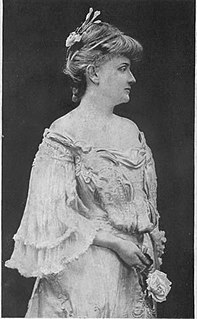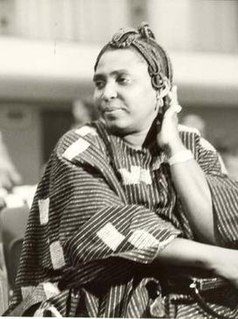A Quote by Maria Montessori
All the movements of our body are not merely those dictated by impulse or weariness; they are the correct expression of what we consider decorous. Without impulses, we could take no part in social life; on the other hand, without inhibitions, we could not correct, direct, and utilize our impulses.
Related Quotes
My chief aim was to combat the view that there can be no true morality without supernatural sanctions. So I argued at length that the social, or altruistic, impulses are the real source of morality, and that an ethic based on these impulses has far more claim on our allegiance than an ethic based on obedience to the commands of a God who created tapeworms and cancer-cells.
The measure of our rationality determines the degree of vividness with which we appreciate the needs of other life, the extent to which we become conscious of the real character of our own motives and impulses, the ability to harmonize conflicting impulses in our own life and in society, and the capacity to choose adequate means for approved ends.
There are 64 divine mother impulses which govern the subtle creation. These are responsible for restoring all earthly and spiritual benefits. They are simply part of one's awakened consciousness. These nine nights are celebrated to rekindle those divine impulses and celebrate the innermost depth of our lives
I remain persuaded of the inevitable and necessary complementarity of man and woman. Love, imperfect as it may be in its content and expression, remains the natural link between these two beings. To love one another! If only each partner could move sincerely towards the other! If each could only melt into the other! If each would only accept the other's qualities instead of listing his faults! If each could only correct bad habits without harping on about them!
At last a vision has been vouchsafed to us of our life as a whole. We see the bad with the good.... With this vision we approach new affairs. Our duty is to cleanse, to reconsider, to restore, to correct the evil without impairing the good, to purify and humanize every process of our common life, without weakening or sentimentalizing it.
Ninety percent of our lives is governed by emotion. Our brains merely register and act upon what is telegraphed to them by our bodily experience. Intellect is to emotion as our clothes are to our bodies; we could not very well have civilized life without clothes, but we would be in a poor way if we had only clothes without bodies.
Nothing can tell us so much about the general lawlessness of humanity as a perfect acquaintance with our own immoderate behavior. If we would think over our own impulses, we would recognize in our own souls the guiding principle of all vices which we reproach in other people; and if it is not in our very actions, it will be present at least in our impulses. There is no malice that self-love will not offer to our spirits so that we may exploit any occasion, and there are few people virtuous enough not to be tempted.
Before the Second World War I believed in the perfectibility of social man; that a correct structure of society would produce goodwill; and that therefore you could remove all social ills by a reorganisation of society. .... but after the war I did not because I was unable to. I had discovered what one man could do to another... I must say that anyone who moved through those years without understanding that man produces evil as a bee produces honey, must have been blind or wrong in the head...
Education without social action is a one-sided value because it has no true power potential. Social action without education is a weak expression of pure energy. Deeds uninformed by educated thought can take false directions. When we go into action and confront our adversaries, we must be as armed with knowledge as they. Our policies should have the strength of deep analysis beneath them to be able to challenge the clever sophistries of our opponents.
Our goals should stretch us bit by bit. So often when we think we have encountered a ceiling, it is really a psychological or experimental barrier that we have built ourselves. We built it and we can remove it. Just as correct principles, when applied, carry their own witness that they are true, so do correct personal improvement programs. But we must not expect personal improvement without pain or some 'remodeling.' We can't expect to have the thrills of revealed religion without the theology. We cannot expect to have the soul stretching without Christian service.




































